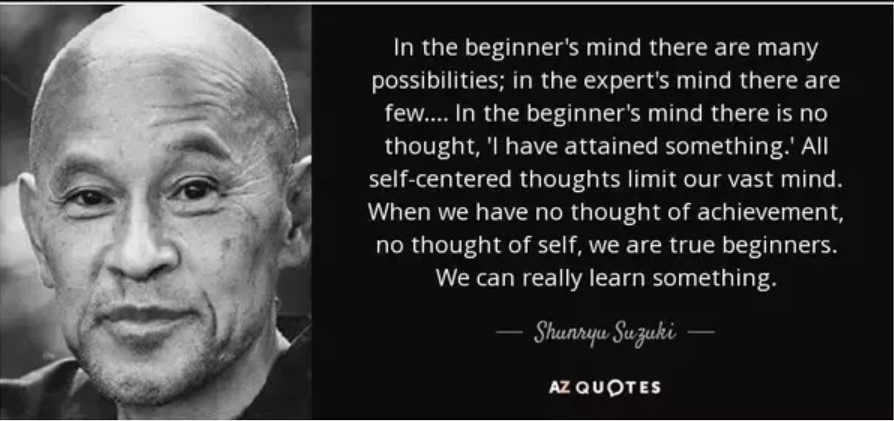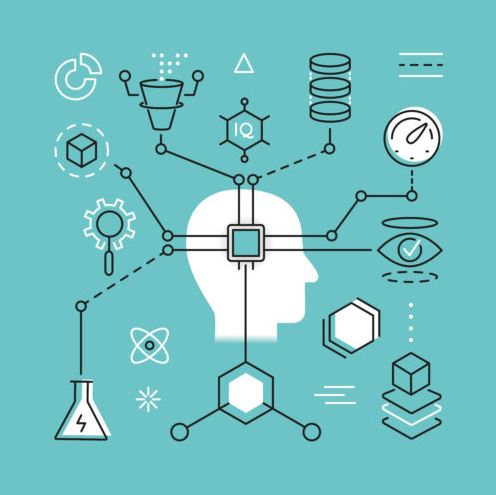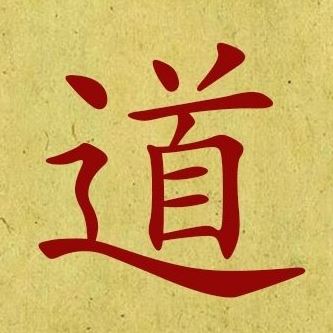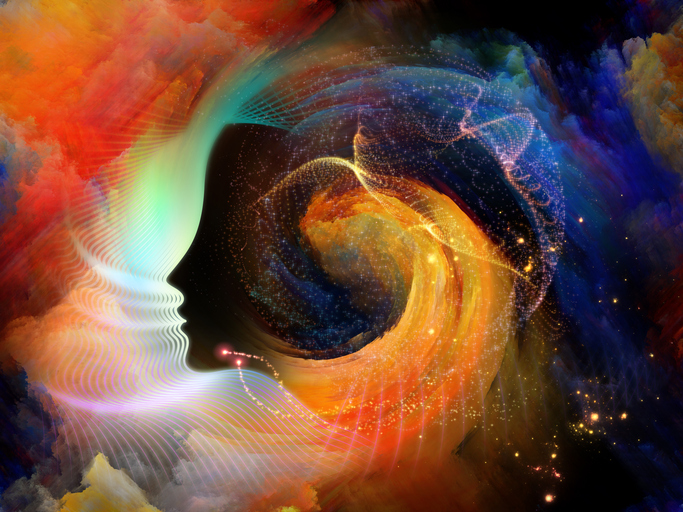Are You Aligned With Reality?
Or Do You See What You Believe And Act On That?
What Does It Mean To Be Aligned With Reality?
Being aligned with reality starts with a clear and accurate understanding of the world. It means perceiving and understanding the world as it truly is, without distortion or delusion.
Shane Parrish of Farnam Street describes alignment as:
"The key to success nobody ever taught you.
The person who aligns themselves with the general principles of the world goes further and faster than the person who doesn’t."
This sounds simple but is hard to put into practice.
We tend to see that which aligns with what we believe, and to act upon those beliefs rather than act in alignment with reality.
Blinded by experience
In my 'day job' I work in the fuel industry representing a major supplier of crude oil and putting together high value supply contracts with oil refineries. This supplier is extremely knowledgeable and very experienced.
This great
experience is often very helpful, but it does mean that on occasions he
is blinded, and thus bound, by that experience to not see the present
realities of a complex and constantly changing market.
So
I sometimes find myself in situations where I bring forward a new
potential buyer and present their requirement and my supplier just
doesn't listen, prefering to assess the situation on the basis of his
past experience.
I had an experience with him recently when he spent about 10 minutes telling me how it ought to be rather than how it was. In the end I just said to him:
"Bob, this is the current discount that is being offered on this crude oil, it doesn't matter what you think or I think, it doesnt matter what you think it ought to be, this is how it is right now, do you want the business or not?" [He did.]
The issue isn't past experience and the beliefs that we hold, the issue is our attachment to that experience and those beliefs.
Many of us would rather die [and often do] before we are willing and able to change our beliefs.
Beginners mind
The zen approach to this challenge is to frame it in terms of Beginners Mind. Zen master
Shunryu Suzuki
captured this very succinctly:
"In the beginner's mind there are many possibilities, but in the expert's there are few."
The implication is that to have knowledge and experience of a subject - to have the mind of an expert - is limiting and we should always assume the mindset of a novice with no prior knowledge or expertise and maintain an open mind.
This is not what Suzuki is saying, he continues:
“In the beginner's mind there is no thought that: 'I have attained something.'
When we have no thought of achievement, no thought of self, we are true beginners.”
The key to this is "no thought of self".
So what we are talking about here is someone with great experience, an expert, performing with no ego involved. An expert with humility and openness.
The beginner's mind is not a mind devoid of knowledge, expertise and experience but a state of mind that is devoid of ego.
The Characteristics Of A Beginners Mind Aligned With Reality
This is what being aligned with reality looks like:
- Objective Perception - Individuals aligned with reality perceive the world objectively, free from undue influence of personal biases, emotions, or preconceived notions. They strive to see things as they are, without distorting or filtering information to fit their desires.
- Truth Acknowledgment - Being aligned with reality requires a willingness to confront and acknowledge the truth, even if it contradicts one's expectations or desires. This includes facing both personal truths and broader societal realities.
- Evidence-Based Thinking - A reality-aligned mindset involves relying on evidence and facts rather than relying solely on opinions, assumptions, or unverified information. Critical thinking and a commitment to evidence-based reasoning are essential components.
These are the qualities that a beginners mind brings to being aligned with reality:
- Adaptability - Those aligned with reality are generally more adaptable to change. They understand that circumstances evolve, and being open to adjusting their perspectives and strategies in response to new information is a key characteristic.
- Emotional Intelligence - Emotional intelligence is closely tied to being aligned with reality. Understanding and managing one's own emotions, as well as empathizing with the emotions of others, contributes to a more grounded and realistic approach to interpersonal relationships.
- Resilience - Being aligned with reality fosters resilience in the face of challenges. Rather than denying or avoiding difficulties, individuals who acknowledge and accept the reality of their circumstances are better equipped to navigate adversity.
- Balanced Optimism - While acknowledging reality, being aligned with it doesn't mean succumbing to pessimism. Instead, it involves a balanced form of optimism that is rooted in a realistic assessment of the situation. This type of optimism is more resilient, as it is based on a clear understanding of both challenges and opportunities.
Being aligned with reality requires:
- Continuous Learning and Growth - A reality-aligned mindset encourages continuous learning and personal growth. Individuals who recognize their strengths and weaknesses can proactively work towards improvement, fostering a mindset of lifelong development.
- Holistic Approach - In essence, being aligned with reality is a holistic approach to understanding oneself, others, and the world. It forms the foundation for making sound decisions, building healthy relationships, and navigating the complexities of life with clarity and purpose.
Common Reasons Why We Struggle To Be Aligned With Reality
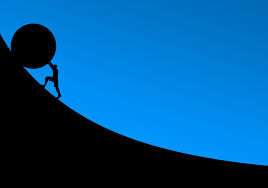
Shane Parrish shares several common reasons why we struggle to be aligned with reality:
[1] Changing your mind is harder with subjective situations
'If you want to be right, you have to change your mind. When the evidence indicates the approach isn’t working, change the approach.
This is easy with something like math, where the answers are black and white, but harder with more subjective things.'
[2] Changing your mind is hardest where outcomes are deferred
'Often the hardest things to change our minds about are the things that require us to understand that just because we can’t see the results immediately doesn’t mean they are not moving us closer or further from the outcome we want.
For instance, eating a full pizza once won’t make you unhealthy, but repeating that choice daily for years certainly will.'
[3] Preferring to feel right rather than being right
'Feeling right, on the other hand, often requires you to believe you are an exception.
You know the path to financial independence, but that takes too long. It’s boring. Instead, you’d rather try the latest incarnation of a get-rich-quicker scheme that promises the outcome sooner.
When it inevitably fails to produce the desired results, rather than tell yourself you made a mistake you chalk it up to the world not working as it should.
It’s as if that little voice in your head says, You’re not wrong; the world is.'
[4] Trying to bargain with reality
'Most of us would rather bargain with how the world works than accept how it does work, cooperate with it, and move forward.
This happens in a lot of areas of life. Consider the general concept of health.
A lot of people think they don’t have to take care of their health. They get too little sleep. They drink too much. They eat incredible amounts of processed food. They get little to no exercise.
While they know health is important, at some level they think they are the exception. Acceptance is knowing you must care for your health because it is the foundation for everything else. Without health, everything else multiplies by zero.'
[5] Believing we are the exception
'We are tempted to believe we’re the exception because it’s the easy path.
Aligning with the world often requires you to pre-pay now for a result later. A little bit of pain today for gain tomorrow. And we don’t like the sounds of that.
However, if you can align yourself with the world despite what those around you do, you’ll quickly discover that it tends to do most of the work for you. It just won’t take the first step for you. You have to take that one for yourself.'
Practical Steps To Becoming Aligned With Reality
One of the core themes of this site is what I call the law of response and outcome which suggests that the outcomes that you experience are determined by your responses to the events in your life.
The strength and quality of your response is determined by the skills and the experience you bring to it, and the stronger your response - the better the outcome. The cumulative effect of these responses has a compounding effect on your life - for better of for worse.
Responding to situations in a way that is fully aligned with reality is fundamental to this approach.
In my experience there are two important areas to look at, understand and apply if you are serious about taking some practical step to becoming aligned with reality:
- The inner world of how your brain works and how your brain gets hi-jacked.
- The mental models that underlie reality and provide practical high level representations of how things work
How your brain gets hi-jacked
Your thoughtful and rational brain gets hijacked in so many ways, for example it:
- Gets sabotaged by your lizard brain
- Gets caught up in the thought stream
- Gets suckered into group think
- Is subject to a very wide range of cognitive biases
- Is limited by your conscious and unconscious beliefs
- Falsely attributes cause and effect
- Falls for the narrative fallacy
- Fails to spot inflection points
...and so much more.
The mental models of how things work that underlie reality
As the late Charlie Munger put it:
“You don’t have to know everything. A few really big ideas carry most of the freight.”
"It’s kind of fun to sit there and out-think people who are way smarter than you are because you’ve trained yourself to be more objective and more multidisciplinary."
This site has very many practical articles with resources that cover this broad area of mental models and many associated articles about how to think clearly.
There are far to many articles to list here and I suggest you refer to the index tabs of the left column of this page, and the site map and search tool.
A good place to start is with these 2 links:
How To Think - Focusing On HOW Not WHAT To Think
Mental Models - Help You Think Effectively
So far so good. But it doesn't necessarily end there. What we have
discussed so far is about how to be aligned with reality, but it goes
further. I am aware of least two more levels beyond the conventional
understanding of reality. Don't worry, I am not going down New Age rabbit holes such as the so called law of attraction and other forms of magical thinking. But
for any reader who is not interested in consciousness and the [non
religious] spiritual dimension you may want to stop reading now. What I want to briefly discuss is: Changing Reality
This really is about a transitional stage where we can find ourselves in
one of two situations. Both of these situations are aspirational but
the circumstance and conditions are quite different.
[1] Standing in the gap The first situation is where we stand between a present reality - the
way things are - and a future where we know what they could be. This is about living in, and being a part of, a transformation. It is not external to us it is within us.
We are the process.
This gap can never be fully closed because the envisioned reality is always an aspiration. The gap is where the action is. Standing in the gap means: [2] The Stockdale Paradox This second situation is a variation of standing in the gap and is
where you are stuck in a difficult or seemingly impossible set of
circumstances and it just goes on and on and there is no end in sight...
This is about how to deal with the attrition factor. The Stockdale Paradox is
named after the late James Stockdale, former vice presidential
candidate, naval commander and prisoner of war during the
American-Vietnam war.
It became well known having been featured in author and business guru Jim Collins’ book
“Good To Great” following extensive interviews between Collins and Stockdale exploring
how Stockdale survived 8 years of imprisonment and torture.
What
the Stockdale Paradox means is that in times of prolonged and seemingly
never-ending hardship, set-backs, suffering and distress we need to
maintain a belief that we will survive and pull through, and yet at the same time balance that with a total realism and practicality about the harsh present realities. Conscious Reality I have written elsewhere about my experiences of what happens when you take the red pill - where taking the red pill is a symbolic action and
a metaphor for an experience of some form of transcendent awakening. Put
very simply, I describe this as a shift from head to heart and what
happens when you reach the point at which you start to seriously engage
with consciousness via your higher self and start to live a life that is
less ego driven and more grounded in the spiritual dimension. What you fairly quickly discover is that:
This is a major inner realignment and a
greater consciousness emerges and expresses itself through you.
Most of the world's major religions point to this transformation. For example, the teachings in the Tao Te Ching point to a major realignment of how we normally function when we undergo a 180 degree shift from living MY life to a life that is lived by the Tao. This
is described in the Tao te Ching as being lived by the Tao. So rather
than living by a set of eternal rules and guidelines this becomes
internalised and reversed: "Only in being lived by the Tao "Let the Tao be present in your life Here is a personal experience that I shared about something that happened to me about 15 years ago. This is difficult for the natural egoic mind to comprehend as it requires a renewal of your mind. The consciousness driven life Renewing your mind is based on practices, not beliefs, that will have a
profound and positive effect on your life. This
all takes work and effort as the human mind runs on deeply ingrained and
habitual patterns of thought. This is an internal integration and alignment of the inner reality and what manifests in the outer reality. This is a complete reversal of the usual ego-driven idea of manifestation.
Living Beyond Reality
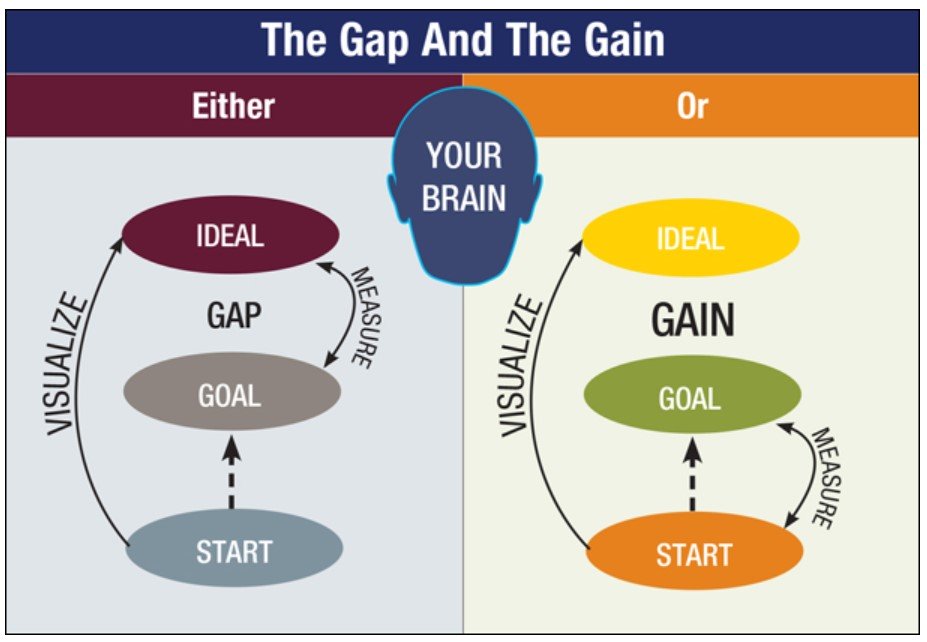
can you truly be yourself." [22]
and you will become genuine." [54]
Next Article:
Law Of Response And Outcome - A New Approach To A New Life
Further Reading:
How Things Really Are - The Inbuilt Design Flaws
The Red Pill - This Is What Will Happen After You Take It
Deus Ex Machina - Consciousness Is Now The God In Our Machine
The Greatest Love - The Most Important Relationship You Will Ever Have
Tao Te Ching - Connecting To Your True Source Of Power
Beginners Mind And The Voice Of Experience
Everything Is Connected And Why You Don't Feel It
Return from: "Are You Aligned With Reality?" to: Walking The Talk
Or Return to: What Is Spirituality?
LATEST ARTICLES
Staying Committed When You Can't See Progress - The Psychology of Grit
 Uncertainty Is Not The Absence Of Progress, Only The Absence Of Reassurance. One of the most destabilising experiences in modern life is not failure, but uncertainty and staying committed when you can…
Uncertainty Is Not The Absence Of Progress, Only The Absence Of Reassurance. One of the most destabilising experiences in modern life is not failure, but uncertainty and staying committed when you can…The Battle For Your Mind - How To Win Inner Freedom In A Digital Age Of Distraction
 From External Events to Inner Events. We often think of “events” as things that happen out there: the traffic jam, the rude comment, the delayed email reply. But what truly shapes our experience is wh…
From External Events to Inner Events. We often think of “events” as things that happen out there: the traffic jam, the rude comment, the delayed email reply. But what truly shapes our experience is wh…How to See Your Thoughts Without Becoming the Story
 A Practical Guide to Thought-Awareness. You can spend your life inside the stories of your mind without ever learning how to see your thoughts clearly and objectively. Most of the stuff we tell oursel…
A Practical Guide to Thought-Awareness. You can spend your life inside the stories of your mind without ever learning how to see your thoughts clearly and objectively. Most of the stuff we tell oursel…The Collison Decision Matrix - A Simple Framework for Better Choices
 The Collison Decision Matrix Is A Practical Everyday Thinking Tool. Most of us spend a surprising amount of time worrying about decisions. From small ones such as what to wear, what to eat, what to te…
The Collison Decision Matrix Is A Practical Everyday Thinking Tool. Most of us spend a surprising amount of time worrying about decisions. From small ones such as what to wear, what to eat, what to te…The Power Of Asking The Right Question
 The Power Of Asking The Right Question Lies In The Quest For Insight. To experience the power of asking the right question you must develop the practice of asking questions. The best way to improve th…
The Power Of Asking The Right Question Lies In The Quest For Insight. To experience the power of asking the right question you must develop the practice of asking questions. The best way to improve th…Site Pathways
 Here is a site pathway to help new readers of Zen-Tools navigate the material on this site. Each pathway is based around one of the many key themes covered on this site and contain a 150 word introduc…
Here is a site pathway to help new readers of Zen-Tools navigate the material on this site. Each pathway is based around one of the many key themes covered on this site and contain a 150 word introduc…How To Live With Contradiction - Beyond Thought Let Stillness Speak
 A major impact on so many peoples' lives is the situational contradiction of unfilled realistic expectations. So where does all this leave us? Well here we are, with mental equipment that is more lim…
A major impact on so many peoples' lives is the situational contradiction of unfilled realistic expectations. So where does all this leave us? Well here we are, with mental equipment that is more lim…How To Trust The Process Of Mindfulness - Right Now
 In mindfulness, the process isn’t some distant goal — it's what is happening right now. When we talk about how to trust the process of mindfulness the credibility of the process is heavily dependent…
In mindfulness, the process isn’t some distant goal — it's what is happening right now. When we talk about how to trust the process of mindfulness the credibility of the process is heavily dependent…Inner Mastery For Outer Impact - Mental Clarity For Effective Action
 Insights only matter if they translate into consistent action. In a world crowded with quick fixes and motivational soundbites, the theme “Inner Mastery for Outer Impact” calls us to something more e…
Insights only matter if they translate into consistent action. In a world crowded with quick fixes and motivational soundbites, the theme “Inner Mastery for Outer Impact” calls us to something more e…The Wise Advocate - Helping You Achieve The Very Best Outcome
 The focus of your attention in critical moments of choice either builds or restricts your capacity for achieving the best outcome. When we talk of 'The Wise Advocate' its easy to think of the consigl…
The focus of your attention in critical moments of choice either builds or restricts your capacity for achieving the best outcome. When we talk of 'The Wise Advocate' its easy to think of the consigl…Trust The Process - Beyond The Cliche
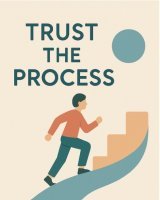 The phrase "trust the process" has become a cliche, the woo-woo mantra of the "self help" industry. Those three little words feel like they ought to mean something useful but hidden behind them are a…
The phrase "trust the process" has become a cliche, the woo-woo mantra of the "self help" industry. Those three little words feel like they ought to mean something useful but hidden behind them are a…The Dopamine Delusion - Why Anticipation Beats Achievement
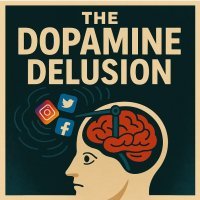 The thrill we feel is not in the having, but in the wanting. The more we have, the more we want. The more things we acquire and the easier things get for us, the more discontent we feel. The more spo…
The thrill we feel is not in the having, but in the wanting. The more we have, the more we want. The more things we acquire and the easier things get for us, the more discontent we feel. The more spo…

